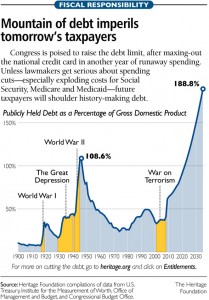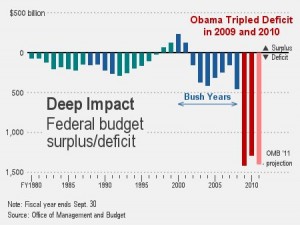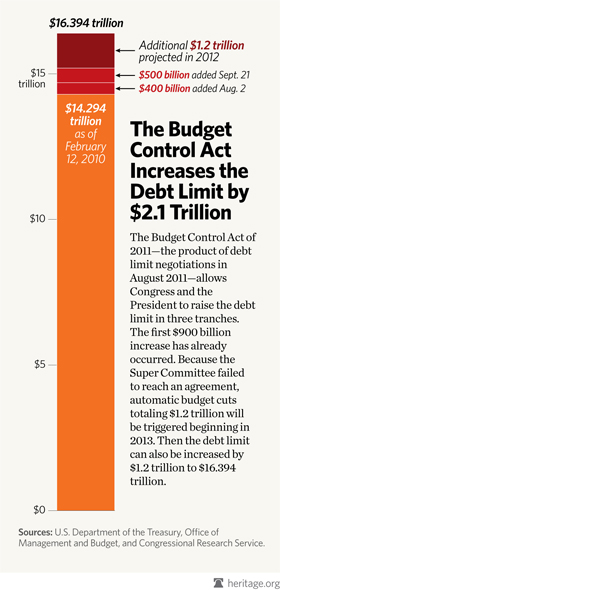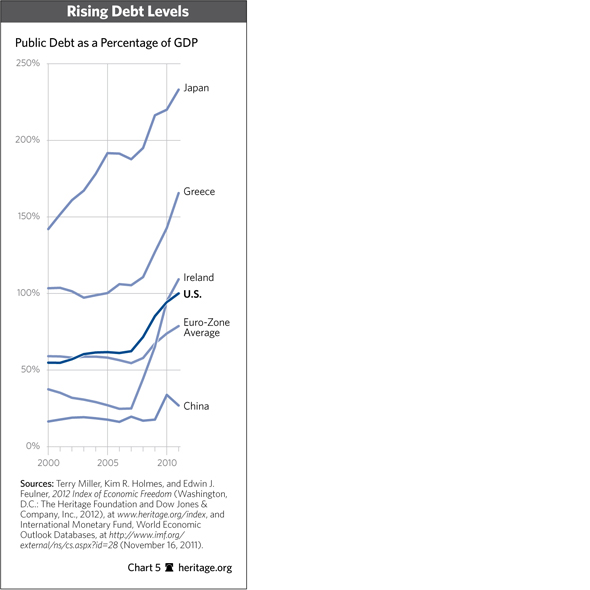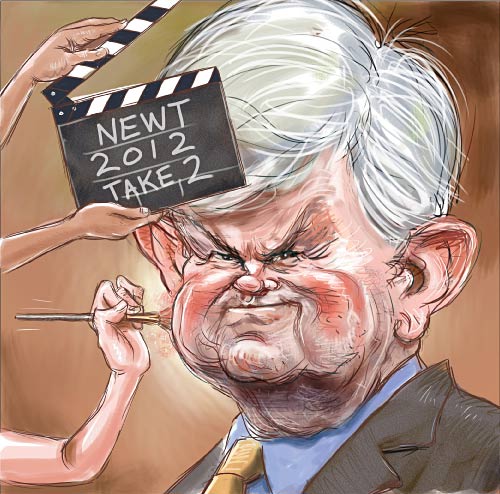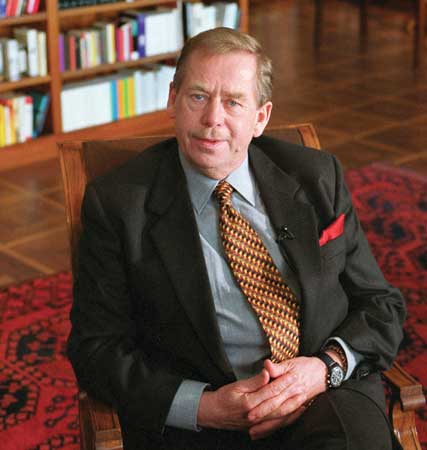
The end of the year leads defenders of the Ramparts to reflect as to whether the year preceding advanced the ideals of western civilization, or damaged them. The year 2011 had its positive moments that suggested some slivers of hope as to the ultimate triumph of man’s battle with himself to secure a better future, but there were also dark clouds galore. It seems to be fundamentally a year in transition, the middle set of a three set match, the pawn takes pawn of a chess battle. We at the Ramparts project the events as threads of a tapestry, that show why this site and others like it that look at events with some perspective of history, have their place. Lets work our way through the significant moments and reflect upon them from our perspective as guardians of the Ramparts of Civilization.
January 8th – U.S. Representative Gabrielle Giffords experiences an attempted assassination : In a horrific moment in time, a deranged sociopath severely wounds congresswoman Giffords and kills six others during a political event in her home district in Tucson, Arizona. Though the murderer is quickly identified as a disturbed individual with no identifiable rationalization beyond anarchy and medical evidence of schizophrenia, the killer is trumpeted in the media as a presumptive right wing “tea party” extremist possibly inspired by an innocuous graphic on a Sarah Palin website using targets as a means of identifying potentially politically vulnerable politicians for the next election. President Obama declares the event at a memorial for the fallen as an example of an outgrowth of our lack of civility in our discourse, then proceeds to vilify the rest of the year those who civilly disagree with him. The use of a national tragedy to advance political ends – not unique, but certainly not our shining hour.
February 6th – the Green Bay Packers win Superbowl XLV 31-25 over the Pittsburgh Steelers : A win for western civilization as a team with numerous injuries and the worst starting position of all the teams in the playoffs triumphs over adversity to win the game of games. Okay, maybe not earth shaking in terms of the effect on preservation of our western ideals, but as a part owner of said team, I felt a need for some shameless trumpeting.
February 7th – Southern Sudan celebrates its ‘peaceful’ independence from Sudan and forms the Republic of South Sudan- President Woodrow Wilson would take pride in the principle of the right of self- determination of indigenous people (excepting his own country), but the founding of South Sudan from Sudan divided one of the poorest nations of the world and managed to create two economic and health care basket cases from one. The previous battle for the secession of southern Sudan from Sudan was marred by genocidal tendencies on both sides in what was termed by one international aid official as “human rights abuses off the Richter Scale”. The world continues to confuse the concept of the rights of a collective people to self govern regardless of their ability to be sustainable, thereby promoting the generation of conflict after conflict without the possibility of any hope or life improvement of the individual people suffering within the conflicted lands. Basket case governments continue to proliferate.
February 11th – Arab Spring Revolution brings the resignation of President Mubarak of Egypt – The most populous Arab nation in the world throws out its President dictator of nearly three decades in a tumultuous revolution. The initial exuberance of the international elite to declare a victory for freedom and individual liberty, however, is chastened over the year as the military remains entrenched and a series of elections turns the government over to Islamists antithetical to the rights of minorities, personal liberty, and western concepts of human rights and justice, and with more than a little passion for the concept of “jihad”. The popular liberal naivete of clamoring for democracy before the societal principles of rights and responsibilities are encrypted and political and judicial institutions are in place to assure its unbiased utilization remain a damning weakness of the clamor for unfettered democracy as a cure all tool for civilization. Across the Arab world, the individual must continue to live in fear of what “democracy” may mean to his individual freedoms, a harrowing thought.
March 7th – President Obama renews military tribunals at Guantanamo – President Obama declared upon his inauguration that within a year the penitentiary at Guantanamo, Cuba would be closed and the terrorists held within, including Khalid Sheikh Mohammed, the 9/11 murderer, would be tried under domestic civil courts and laws. Two years later, the well thought out process of the Bush administration to deal with country-less war combatants, so impugned by Obama and his Justice department, proved to be unassailable. The cave in of the President on this issue hurt him severely on his support from the left, and exposed the rank political nature of the arguments that followed the 9/11 tragedy. The consideration of providing the rights of a U.S. citizen under the constitution to enemy combatants who claim no country as their own was shown to be illogical, and served only to reflect the administration’s disdain for the special nature of those rights, when they later in the year killed remotely the American citizen terrorist Anwar al-Awlaki, without a trial or tribunal of any kind.
April 5th – Justice David Prosser wins re-election to the Wisconsin Supreme Court – The story that perhaps best outlines the progressively titanic battle of the forces of government statism and the rights of individuals has been running non-stop in the state of Wisconsin since the November, 2010 election of Republican governor Scott Walker and an accompanying republican legislature. Faced with the strangulating deficits accrued by incompetent and irresponsible predecessors in office, Governor Walker campaigned on a platform of budgetary discipline and solvency that once in office, he fulfilled almost immediately. A balanced budget required by law was achieved partially by restraining the unfettered perks of government unions and asking government employees to pay a percent of their health and pension benefits, more reflective of what the private sector employee faces. In an explosion foreshadowing the cataclysm to come on a national level when even more spectacular debt is finally faced up to, the unions fought back with a vengeance and furor, pouring tens of millions of dollars and thousands of protesters into the maelstrom that became the Wisconsin capital of Madison. Having little sway in effecting the popularly elected governor and legislature, the unions turned the ratchet tightly onto their own, demanding legislative obstruction and obtaining the flight to Illinois of their democrat legislative stoolies, and using the courts to attempt to obstruct the legislative process. County liberal justices put forth restraining orders on the legislative process restricting the democratic will of the populous from the previous election, and the restraint came down to the ultimate control of the Wisconsin Supreme Court in the election between sitting judge David Prosser and his rabidly liberal opponent Joanne Kloppenberg, as to whether a democracy would function through its elected legislature or its courts. In a race with huge implications and massive turnout, Prosser beat back Kloppenberg by 7000 votes out of over a million and a half cast, and the voice of the elected legislative process was preserved. The result in Wisconsin has been a balanced budget for the first time in over a decade without federal stimulus dollars or stolen funds from other constituencies, an emerging national hero for governmental sanity in Walker, and a never say die anarchist strategy of the unions who fear their power over the democrat party is at risk. The result has been never ending special recall elections to attempt to overturn the results of the previous election, and one that is planned to threaten Walker himself in April, 2012. Will the perks of the privileged and protected be preserved in the face of obvious crisis? The question is one that all western governments are facing and will likely determine our future as responsible democratic republics. Stay tuned. In a Wisconsin microcosm, this is The Story of our times.
May 2nd – American special forces kill Osama Bin Laden – A spectacular raid into Pakistan leads to the cornering and killing of the central figure of the 9/11 attack and murderer of 3000 people, who premeditatively ignited a world wide war on terrorism that resulted in the deaths of hundreds of thousands. The principle concept of a death cult that saw the suppression of the rights of millions and slaughtering of innocents for the ‘assured’ reward in the afterlife came to a instantaneous end in the identification of a pathetic old man who watched himself endlessly on videos and titilated himself with pornography. The inherent emptiness of a philosophy that determines for others at the threat of a gun a righteous life was once again exposed. For President Obama, and a world that believes in human worth, a huge victory.
September 17th – Occupy Wall Street begins its sit in in New York City- The reverse mirror image to the Tea Party first presents itself in New York as the people’s representative of the economic inequities that exist in society, as emblazoned in their chant, “we are the 99%”. Unlike with the Tea Party of the previous year, the clarity of the message quickly degenerates into the concerns of multiple special interests, that have as their core philosophy, they have it, we want it! . The stated cohesion of the eventual demonstrations that broke out the world over is that society has an obligation to assure the security, comfort, and health of all, and the concept of self actualization and personal responsibility an outdated concept. Like so many events of recent years in western society, Occupy is driven by the desire to separate the will of a society to provide from its means of production, and as Hayak surmised, would inevitably lead to the demise of free will and the power of the market to improve the life experience. TEA PARTY vs OCCUPIERS , the battle royale of the 21st century.
October 5th – Apple founder Stephen Jobs dies – the genius behind the development of the personal computer, the portable music library, the smart phone, and the interactive tablet started his dream in his parent’s garage, daring to be different and self reliant, and ended it feeling the same way. Jobs’ very being was tied up in providing to each individual sufficient connection to the surrounding universe to assure each maximal freedom in interpreting their place in it. He made the world forever an interconnected place, and disdained the idea of a government picking technology winners. At a time when creative invention was felt all but lost, Jobs sent it soaring towards the heavens.
October 18th – Israeli soldier Gilad Shalit, five years in capitivity is exchanged for over 1000 Palestinian prisoners – The only functioning democracy in the middle East respecting the rights within the government of religious and political minorities, shows its vulnerability in the commitment made to one of its own. Israel, in weighing the trade of a single human life, for many who sought the death of innocents to further their cause, shows the way for all belligerents to wear down the will of the nation state that believes in its citizens. For Gilad Shalit, freedom. For the nation of Israel, the strength of the commitment to one of its defenders, threatens its very defense. The most difficult of trades, for sure.
November 12th – Italian Prime Minister Silvio Berlusconi resigns – The burgeoning crisis of the Euro and its underlying exposure of the frailties of the concept of a social democracy, progressed through Italy with the fall of the elected government of Berlusconi and the appointment of a pan- European techi-bureaucrat, showed the progressive failure of European democracies to convince their populations of the need to show fiscal discipline and improved self reliance. Like the Greek government before it, the Italians faced an intolerable situation of more citizens receiving the bounties of society than those capable of underwriting it, and collapsed under the weight of burgeoning debt. The inflexibility of the Euro to allow the southern European Union nations to manage their debt led to a crisis in the pan European economic union and the eventual fragmentation of the united front governing single market policy, with great Britain on one side and Germany and France on the other. Far from solved, the temporary fix through “market fracture” only delays into 2012 the telling bill of this crisis. In a continent where previous wars were measured in decades and even centuries, the inequities that are developing are an ominous sign of what could develop.
December 18th – the last American troops leave Iraq ending eight years of American military involvement – The quiet withdrawal seems anti-climatic to a military force that overthrew a vicious dictator in Saddam Hussein, endured a violent, costly guerilla war, birthed a messy arab democracy, and crushed a world wide terrorist network on the battle fields of the Tigris and Euphrates. Whatever the outcome to Iraq (and the fragile democracy within hours of the withdrawal already seemed perilously close to collapse), the incredible performance of the military force in the face of severe conditions and variable public support stands as an epic performance in the annuals of western military actions. The dominant conqueror in the field, they left with no territory ever as the goal, only the sacrifice to bring the fragile sprout of human freedom a tenuous root in an ancient soil of humanity that had been so long without. It was a supreme ramparts of civilization effort, and no outcome can ever diminish it.
2011 ended with little settled and many open ended story lines. Historically, the perspective is too soon to discern titanic shifts in the human experience. The defenders of the Ramparts will have to stay vigilant, as the enemies to freedom are many and persistent. 2012 will be the palate upon which the varied colors of the mosaic of history will be drawn. Here’s hoping for the good guys winning out.
